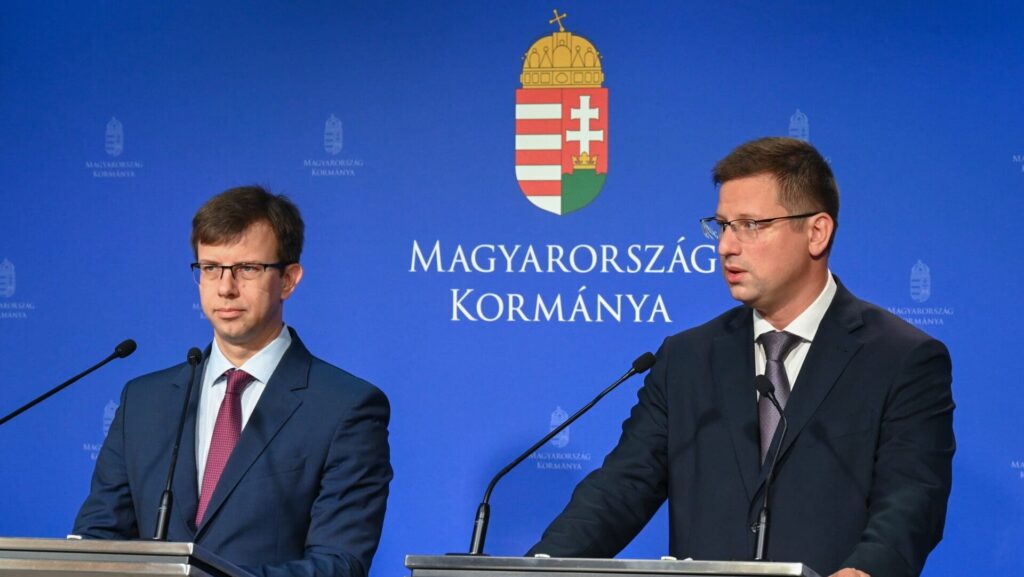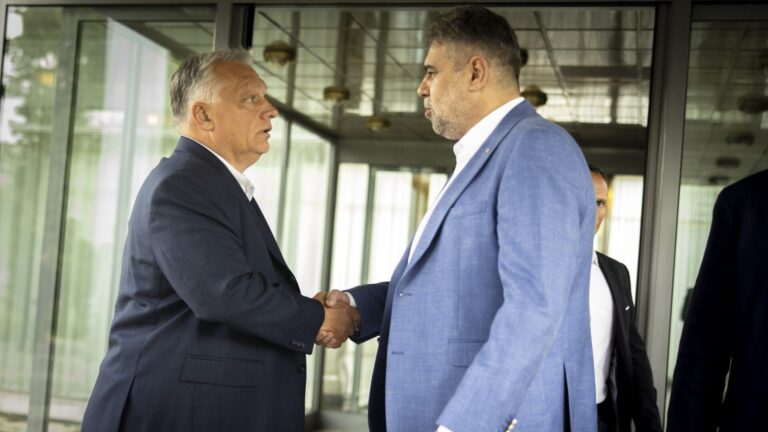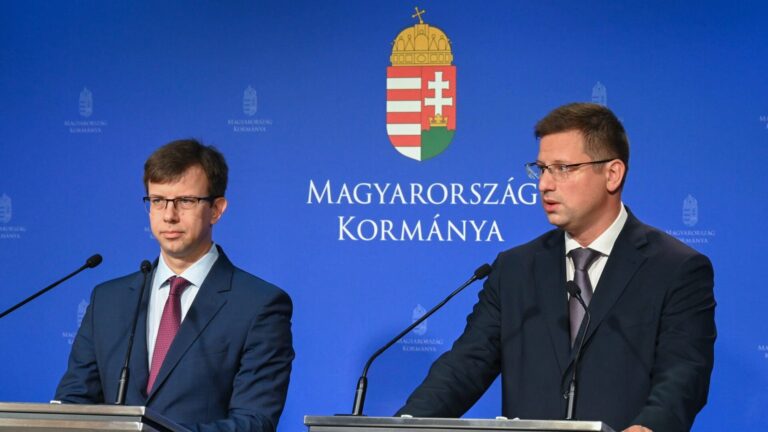Many critics, both domestically and abroad, were quick to call Hungary’s new ‘excess profit tax’ unreasonable and without precedence in the history of economic policy-making – as if it were a blasphemy against the free market. The reality is, of course, quite different but we’ll get to that later. First, who is the vocal critic of the policy, Michael O’Leary, CEO of Ryanair, who got so angry at the new Hungarian special tax? Not that he would behave differently in the past; his utter disrespect for elected officials has been proven more than once.
Over the decades, the CEO has gained quite a fame for his scandalous remarks in the 2000s, earning the Irish airline a reputation for wanting to milk its passengers as much as it can. For instance, O’Leary toyed repeatedly with the idea of “pay-per-pee” toilet fees aboard his planes, but luckily the board discarded it every time. Unlike his plan to end traditional airport check-in, forcing passengers to do it online and print their boarding passes, or risk being awfully overcharged if they forgot to do so. According to O’Leary, passengers ‘should pay 60 euros for being so stupid.’ He was known for saving money on cleaning and equipment too, and even charged his pilots for their own job interviews and flight tests. Furthermore, O’Leary repeatedly made fun of gay, fat and poor people, called for all consultants, travel agents and environmentalists to be simply shot, and insulted fellow business executives and even politicians, such as various top government officials, the prime minister of Ireland and the entire EU commission with utterly unacceptable language.
According to O’Leary, passengers ‘should pay 60 euros for being so stupid’
Now it’s Hungary that’s in his crosshairs, but it might be him who will get the final shot. After the announcement of the excess profits tax in Hungary, O’Leary was quick to call Minister for Economic Development Márton Nagy an ‘idiot’ and shift the new tax entirely on his passengers – even retroactively charging their cards again after each purchased ticket. What followed since is an ever-growing dispute between the CEO and Minister Nagy, which has since developed into a legal suit on behalf of Hungarian customer protection. But before we go into that, what is this excess profits tax anyway?
According to Investopedia, the term ‘excess profits tax’ (sometimes also called ‘windfall tax’) has a long history in Western economic politics, and is defined as a temporary special tax ‘assessed upon individual or corporate income beyond a specified amount of return on invested capital, usually in excess of what is deemed to be a normal income.’ This plainly means that if unusual socio-economic circumstances create significantly more revenue for some sectors (while usually leaving the masses poorer by the day), the government introduces a special tax on them to alleviate the growing inequality or to create emergency funds in times of crisis. If you had not noticed, the times we currently live through are teeming with such crises.
The fallout of the pandemic and the war in Ukraine (as well as the subsequent Western sanctions on Russia) have created new and exacerbated our existing economic problems to levels unseen for most living people. We face unexpected supply chain disruptions, energy and food crises, skyrocketing fuel prices, and mounting inflation in each of our countries, and all of these will likely get worse before getting any better. What’s more, the geopolitical situation in Ukraine has presented Europe with unprecedented strategic challenges (as far as the last couple of decades are concerned) and the whole continent was dragged into a rushing arms race to prepare for or to deter possible future aggressions.
Now, imagine struggling to keep a leaking, hole-riddled ship afloat while simultaneously having to install the biggest cannons you can find on board. The captain in charge might ask some of the wealthiest passengers to chip in the maintenance of the ship until safe shore is reached, lest they all risk going down together. It is only reasonable in such times, and so is the windfall tax. Because even in times like this, fortune shines on certain multinational companies, such as energy giants, whose profits grew exponentially as the supply and demand of fossil fuels, among others, reached their new balance in the wake of the Russian sanctions. Their excess profit – compared to an average level of peacetime revenues – constitutes the subject of today’s question.
The special tax bracket varies by the sector, nonetheless, the government expects an extra 815 billion HUF (around $2.2 billion) in tax revenues this year alone
The new Hungarian excess profits tax was brought upon eight sectors specifically, such as banking, energy, telecommunication, or pharmaceuticals, just to name a few. The special tax bracket varies by the sector, nonetheless, the government expects an extra 815 billion HUF (around $2.2 billion) in tax revenues this year alone. A quarter of this amount will be spent on the much-needed military modernization, while the bulk of it will go to help keep the residential energy prices relatively low. Despite the uproar within the corporate world, the Hungarians expressed strong bipartisan support for the extra profits tax, as a recent poll shows that 79% are in favour of such an initiative.
We might also note that the idea of excess profits tax is nothing new in the West. Many countries have introduced, or were considering, introducing it previously. The United States, for instance, passed a law taxing excess profit as early as 1917 (due to the similar wartime situation) which stayed in place for four years afterward. It was repeated again in the 1930s, ‘40s, and 50s as well, and it was proposed to Congress again just two years ago, after the outbreak of the coronavirus pandemic. Similarly, the British parliament has been having the same debate for decades now, and it looks like that – after the Hungarian precedent – it will finally happen this year, as well as in Germany and other European states, many of which already have some form of it in place. Furthermore, the practice already has a history in modern Hungary too, as it was first implemented by the second Orbán government in 2010 to alleviate the effects of the financial crisis. Then – just as now – critics foretold the mass exodus of multinational companies from the country, yet nothing of the sort has happened. And no big corporation complains now either, not even the airlines – except for Ryanair, of course.
O’Leary called the Hungarian windfall tax ‘theft’, and the minister tasked with developing the details an ‘idiot’ to whom he would gladly send a textbook on basic economics. Nagy answered by calling out Ryanair’s apparent double-standard: if the airline is happy to pay the same or similar taxes in Germany, Sweden, France or the Netherlands without a single word, why can’t Hungary ask for the same? Moreover, he called Ryanair’s decision to put the burden of extra costs on the Hungarian passengers unacceptable, calling for its immediate reversal. Of course, O’Leary refused to apologise or to revert back on his decision even after a week, so the dispute ended up in court, unsurprisingly.
Due to the spike in customer complaints filed against Ryanair after it started to charge passengers again for tickets purchased months ago, the Hungarian customer protection authorities have started the legal proceedings against the airline, which will most likely result in a fine of up to two billion Hungarian forints or 2.66 million dollars. Perhaps Michael O’Leary has gotten away with too much in the past, but now he won’t for sure. Besides, under the current circumstances we simply don’t have time for these low-level interactions (more suited for a Dublin pub); for Hungary, the interests of Hungarians will always come first, no matter what. Someone like O’leary – who has put his self-interests before everyone else’s throughout his life – should be able to understand that.
The Hungarian customer protection authorities have started the legal proceedings against the airline








